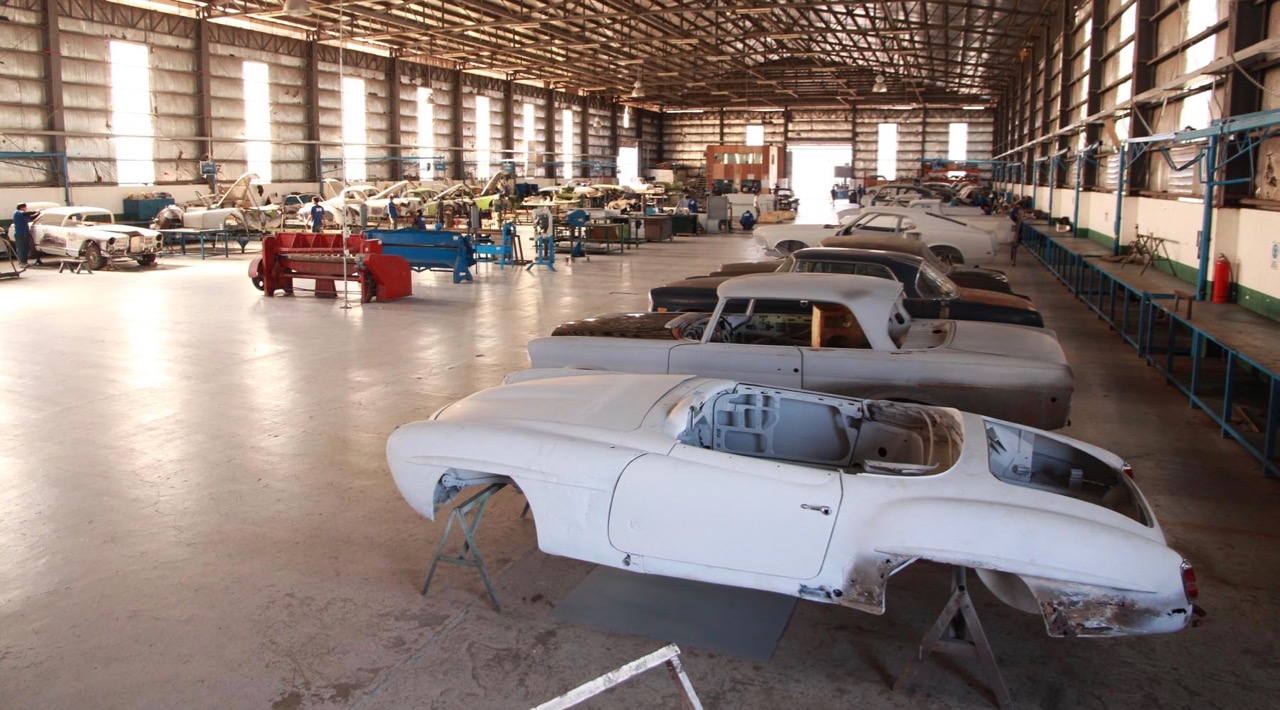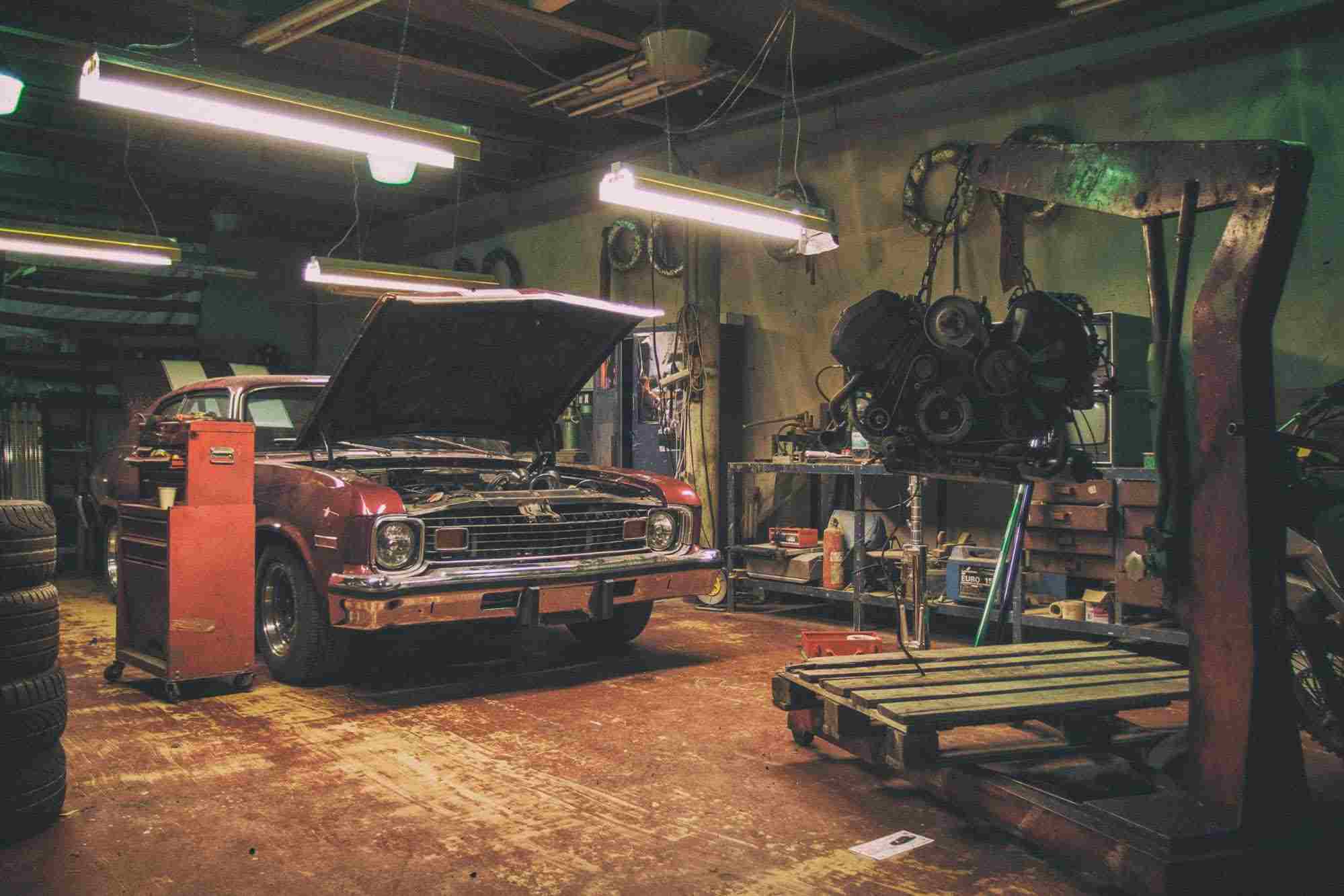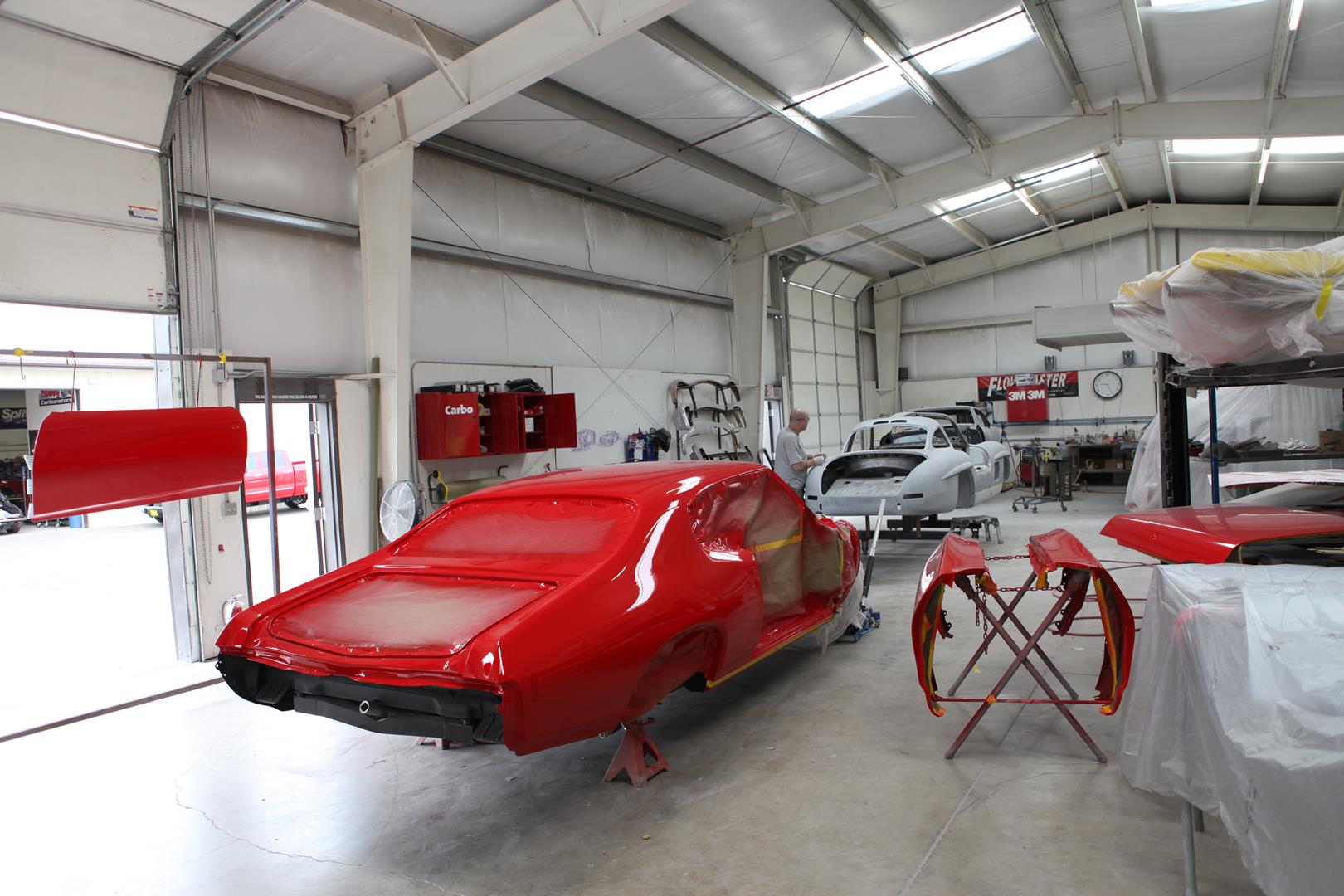Restoration Car Shops: Reviving Automotive Treasures
As restoration car shops take center stage, they beckon enthusiasts into a world of meticulous craftsmanship and automotive artistry. These havens of automotive restoration offer a myriad of services, promising to breathe new life into cherished vehicles, turning back the clock on time and restoring them to their former glory.
From classic car restoration shops specializing in preserving automotive icons to muscle car restoration shops dedicated to restoring the roar of high-performance legends, the landscape of restoration car shops is as diverse as the vehicles they cater to. With their expertise and passion for automotive excellence, these shops provide a lifeline for car enthusiasts, ensuring that the legacy of automotive history continues to live on.
Restoration Car Shop Overview
A restoration car shop specializes in restoring classic or vintage vehicles to their original condition or a desired state. These shops possess the expertise and equipment to handle various restoration projects, ranging from minor repairs to complete overhauls.Restoration car shops offer a comprehensive range of services, including:
- Vehicle assessment:Evaluating the condition of a vehicle and determining the scope of restoration work required.
- Bodywork:Repairing or replacing damaged body panels, restoring the original shape and contours of the vehicle.
- Paintwork:Stripping old paint, preparing the surface, and applying new paint to match the original color and finish.
- Mechanical restoration:Overhauling the engine, transmission, suspension, and other mechanical components to ensure optimal performance.
- Interior restoration:Restoring or replacing seats, upholstery, dashboard, and other interior components to their original appearance.
- Electrical system repair:Troubleshooting and repairing electrical issues, ensuring the proper functioning of lights, gauges, and other electrical components.
The benefits of using a restoration car shop include:
- Expertise and experience:Restoration car shops have the knowledge and skills to handle complex restoration projects, ensuring the highest quality of workmanship.
- Access to specialized equipment:These shops have access to specialized tools and equipment necessary for proper restoration, such as bodywork jigs, paint booths, and engine diagnostic tools.
- Attention to detail:Restoration car shops take pride in their work and pay meticulous attention to detail, ensuring that every aspect of the vehicle is restored to its original condition or desired state.
- Increased value:A professionally restored classic or vintage vehicle can significantly increase in value, making it a worthwhile investment.
- Preservation of automotive heritage:Restoration car shops play a vital role in preserving automotive heritage by restoring and maintaining classic and vintage vehicles that have historical significance.
Types of Restoration Car Shops
Restoration car shops specialize in restoring classic, muscle, and other types of vehicles to their original condition or a desired state. They offer a range of services, from basic repairs to complete overhauls.
There are several types of restoration car shops, each with its own area of expertise. Some shops specialize in restoring a particular type of vehicle, such as classic cars or muscle cars, while others offer general restoration services for all types of vehicles.
Classic Car Restoration Shops, Restoration car shop
Classic car restoration shops specialize in restoring classic cars to their original condition. These shops typically have a team of experienced technicians who are familiar with the unique challenges of restoring classic cars.
- Services offered by classic car restoration shops may include:
- Bodywork and paint
- Engine and transmission rebuilds
- Interior restoration
- Electrical system repairs
Muscle Car Restoration Shops
Muscle car restoration shops specialize in restoring muscle cars to their original condition or a desired state. These shops typically have a team of experienced technicians who are familiar with the unique challenges of restoring muscle cars.
- Services offered by muscle car restoration shops may include:
- Bodywork and paint
- Engine and transmission rebuilds
- Suspension and brake upgrades
- Interior restoration
General Restoration Shops
General restoration shops offer restoration services for all types of vehicles, including classic cars, muscle cars, and other types of vehicles. These shops typically have a team of experienced technicians who are familiar with the unique challenges of restoring different types of vehicles.
- Services offered by general restoration shops may include:
- Bodywork and paint
- Engine and transmission rebuilds
- Suspension and brake upgrades
- Interior restoration
- Electrical system repairs
Factors to Consider When Choosing a Restoration Car Shop
When choosing a restoration car shop, it is important to consider the following factors:
- Experience:The shop should have experience in restoring the type of vehicle you own.
- Reputation:The shop should have a good reputation for quality work.
- Cost:The shop should offer competitive rates for its services.
- Location:The shop should be conveniently located for you.
- Warranty:The shop should offer a warranty on its work.
Restoration Process

The restoration process involves meticulously returning a classic or vintage car to its original condition or to a desired state. It is a complex and time-consuming endeavor that requires specialized knowledge, skills, and a passion for automobiles.
The restoration process typically consists of four main stages: planning, disassembly, repair, and reassembly. Each stage requires a unique set of techniques and tools, and a deep understanding of the car’s original design and construction.
Planning
The planning stage is crucial for the success of any restoration project. It involves gathering information about the car, its history, and its original condition. This includes researching the car’s model, year, and any modifications that may have been made over time.
During the planning stage, the restorer will also create a detailed work plan that Artikels the steps involved in the restoration process. This plan will include a budget, a timeline, and a list of materials and parts that will be needed.
Disassembly
The disassembly stage involves taking the car apart piece by piece. This is done carefully to avoid damaging any of the components. The parts are then cleaned, inspected, and cataloged.
During the disassembly stage, the restorer will also look for any hidden damage or rust that may need to be repaired. This is a critical step in the restoration process, as it allows the restorer to assess the true condition of the car.
Repair
The repair stage involves restoring the car’s components to their original condition. This may involve welding, painting, or replacing damaged parts. The restorer will also need to address any mechanical issues that the car may have.
The repair stage is often the most time-consuming and expensive part of the restoration process. However, it is also the most rewarding, as it is when the car begins to take shape.
Reassembly
The reassembly stage involves putting the car back together. This is done in the reverse order of disassembly. The restorer will need to take care to ensure that all of the parts are fitted correctly and that the car is functioning properly.
The reassembly stage is a critical step in the restoration process, as it is when the car is finally brought back to life. It is also a time for the restorer to reflect on their work and to appreciate the beauty of the finished product.
Cost of Restoration: Restoration Car Shop

Car restoration projects can vary significantly in cost, depending on a range of factors. Understanding these factors can help you budget for your project and make informed decisions about the level of restoration you want to achieve.
The primary factors that influence the cost of car restoration include:
- Type of vehicle: The make, model, and year of the vehicle will affect the availability and cost of parts, as well as the complexity of the restoration process.
- Level of restoration: The extent of the restoration, from a simple refresh to a complete frame-off rebuild, will significantly impact the cost.
- Materials: The quality and type of materials used, such as paint, upholstery, and trim, can vary in cost.
- Labor: The labor costs associated with restoration can vary depending on the skill level of the technician and the complexity of the work.
- Time: The amount of time required to complete the restoration will affect the overall cost.
Materials
The materials used in a car restoration project can account for a significant portion of the cost. These materials include:
- Body panels: Replacing rusted or damaged body panels can be expensive, especially for classic or rare vehicles.
- Paint: The cost of paint will vary depending on the type and quality of the paint used.
- Upholstery: Replacing or repairing upholstery can be costly, especially if using high-quality materials such as leather.
- Trim: Replacing or restoring trim pieces, such as chrome accents or woodgrain panels, can add to the cost.
Labor
The labor costs associated with car restoration can vary depending on the skill level of the technician and the complexity of the work. Some tasks, such as engine rebuilding or transmission repair, require specialized skills and can be more expensive.
Time
The amount of time required to complete a car restoration project will also affect the overall cost. More complex restorations, such as frame-off rebuilds, can take months or even years to complete.
Finding a Reputable Restoration Car Shop
Finding a reputable restoration car shop is crucial to ensure the quality and authenticity of your restoration project. Here are some tips to help you research and evaluate potential shops:
Experience and Expertise
Look for shops with extensive experience in restoring similar models or types of vehicles. Check their portfolio and ask for references to verify their expertise.
Reputation and Reviews
Read online reviews and testimonials from previous customers to gauge the shop’s reputation and the satisfaction of past clients. Pay attention to comments on workmanship, communication, and adherence to timelines.
Certifications and Affiliations
Check if the shop is certified or affiliated with reputable organizations in the industry, such as the National Automotive Restoration Society (NARS) or the Classic Car Club of America (CCCA). These affiliations indicate adherence to industry standards and best practices.
Communication and Transparency
Establish clear communication with the shop throughout the restoration process. Inquire about their communication methods, progress updates, and willingness to answer questions or address concerns.
Warranty and Insurance
Ask about the shop’s warranty and insurance policies. A warranty provides peace of mind against any defects or issues with the restoration, while insurance ensures protection against potential accidents or damages during the process.
Summary

The world of restoration car shops is a testament to the enduring fascination with automobiles and the desire to preserve their timeless appeal. As these shops continue to evolve, embracing new technologies and techniques, they will undoubtedly remain at the forefront of automotive restoration, ensuring that future generations can continue to marvel at the beauty and engineering prowess of cars from yesteryear.
Detailed FAQs
What services do restoration car shops offer?
Restoration car shops offer a wide range of services, including bodywork repair, paint restoration, mechanical restoration, interior restoration, and electrical system restoration.
How do I choose a reputable restoration car shop?
When choosing a restoration car shop, it’s important to consider factors such as experience, reputation, customer reviews, and the shop’s ability to meet your specific needs and budget.
What are the typical steps involved in a car restoration project?
The typical steps involved in a car restoration project include planning, disassembly, repair, and reassembly. The planning stage involves setting goals and determining the scope of the project. The disassembly stage involves taking the car apart to assess the condition of its components.
The repair stage involves fixing or replacing damaged or worn parts. The reassembly stage involves putting the car back together and ensuring that all systems are functioning properly.
How much does it cost to restore a car?
The cost of restoring a car can vary significantly depending on the type of car, the extent of the damage, and the quality of the restoration. A basic restoration can cost a few thousand dollars, while a complete restoration can cost tens of thousands of dollars.

